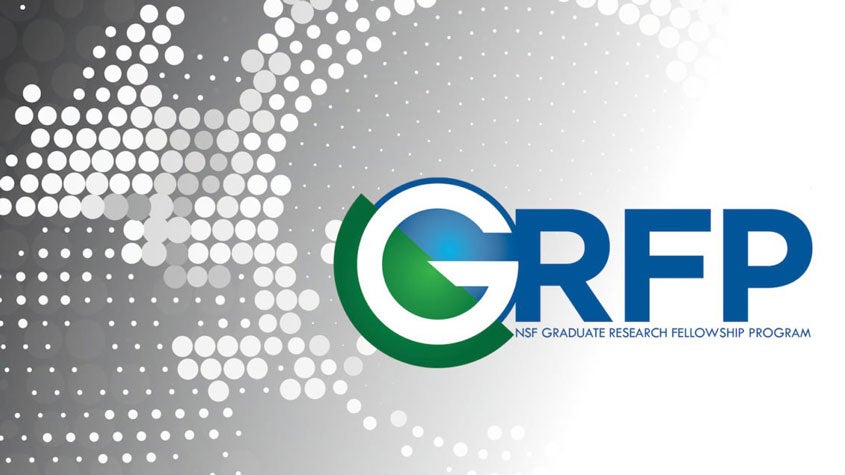Over 30 recipients of this year’s National Science Foundation (NSF) Graduate Research Fellowships are Rice students, incoming students or alumni. Only 2,000 students of the more than 12,000 applicants across the country received this honor.
The Graduate Research Fellowship Program awards the student as a person, and not simply a paper containing research plans,” said Kim Gonzalez Hohlt, director of student advancement and career development in Rice’s Office of Graduate and Postdoctoral Studies. “The program finds students who made an impact on their communities and show the promise to continue improving our world, and at the same time communicate a phenomenal research project.”
The NSF Graduate Research Fellowship Program (GRFP) recruits high-potential, early career scientists and engineers and supports their graduate research training in science, technology, engineering and mathematics (STEM) fields and the social sciences. It is part of NSF’s overall strategy to develop a globally engaged workforce to ensure the nation’s leadership in advancing research and innovation in science, engineering and social sciences.
GRFP provides three years of financial support within a five-year fellowship period: a $34,000 annual stipend and a $12,000 cost-of-education allowance to the graduate institution. The funds are intended for graduate study that leads to a research-based master’s or doctoral degree in a STEM field.
Gonzalez Hohlt knows firsthand the impact the GRFP can have: She was an NSF GRFP fellow while pursuing her Ph.D. in biochemistry and cell biology at Rice, and later served as a writing mentor for other Rice students applying for their own GRFP fellowships before coming to work full time in the graduate studies office.
“Getting the email that you’ve won the award is a fantastic moment for the students, and it creates opportunities during their graduate and postgraduate careers,” she said. “I love that the NSF GRFP values broader impacts, and not solely the research focus.”
Of the 24 Rice-affiliated fellows, 13 are current or incoming graduate students, 10 are seniors and 10 are alumni who will conduct their fellowships at other schools.
Graduate students:
Sophia Andaloro: physics and astronomy — particle physics
Jacob Beckham: chemistry — chemical synthesis
Elizabeth Blackert: engineering — materials engineering
Matthew Garcia: engineering — environmental engineering
Emily Jetmore: social sciences — cultural anthropology
Brian King: mathematical sciences — statistics
Wenbin Li: materials research — physics of materials
Brett Pogostin: engineering — bioengineering
Amanda Nash: engineering — bioengineering
Alexander Nolte: mathematical sciences — geometric analysis
Incoming graduate students:
Emily Jiang: engineering — bioengineering
Barclay Alexander Jenks Jumet: engineering — mechanical engineering
Daniel Prasca-Chamorro: engineering — biomedical engineering
Undergraduates:
Alexander Acosta: engineering — aeronautical and aerospace engineering
Yvonne Carrillo: social sciences — sociology
Savannah Cofer: engineering — mechanical engineering
Kevin Gonzalez: chemistry — macromolecular, supramolecular and nanochemistry
Jinyoung Kim: life sciences — microbial biology
Raymond Lau: engineering — aeronautical and aerospace engineering
Takuma Makihara: physics and astronomy — condensed matter physics
Sahil Patel: engineering — materials engineering
Paraksh Vankawala: engineering — aeronautical and aerospace engineering
Grace Wickerson: engineering — materials engineering
Alumni at other schools:
Elizabeth Chilton: engineering — bioengineering
Carolyn Cooper: engineering — civil engineering
Anecia Gentles: life sciences — ecology
Philip King: engineering — mechanical engineering
Lidia Kuo: materials research — electronic materials
Nicholas Link: mathematical sciences — biostatistics
Audrey Odwuor: geosciences — biogeochemistry
Jacob Saldinger: engineering — chemical engineering
Elaine Shen: life sciences — ecology
Saad Yousaf: engineering — mechanical engineering

